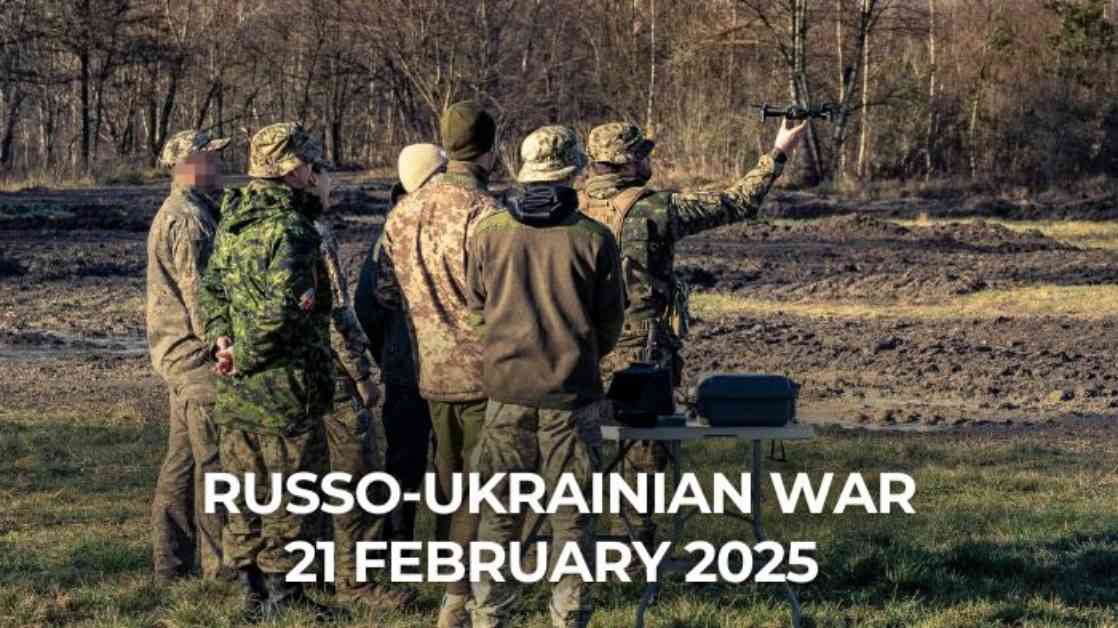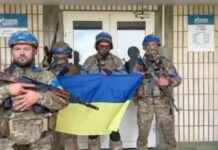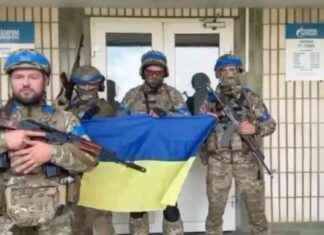In the heart of the ongoing Russo-Ukrainian conflict, recent events have once again brought to light the devastating impact of war on the people and infrastructure of Ukraine. As Russian forces continue their aggressive strikes, the city of Kostyantynivka in Donetsk Oblast found itself at the receiving end of a tragic attack, resulting in the loss of three lives and injuries to two individuals. The aftermath of the strike left a trail of destruction, with 10 apartment buildings, 21 private homes, three industrial facilities, and critical power and gas infrastructure severely damaged. The toll of war is starkly evident in moments like these, where the lives and livelihoods of innocent civilians are caught in the crossfire of conflict.
Unprecedented Losses and Strategic Strikes
The Strategic Forces of Ukraine (SBU) recently executed a daring operation, targeting the Krasnodar oil pumping station that supplies crucial refineries in Russia. By utilizing drones to disrupt the power supply to the station, the SBU dealt a significant blow to Russia’s oil transportation network, impacting the operations of major refineries in Afipsky and Ilsky. This strategic move underscores the importance of technological warfare in modern conflicts, where precision strikes can disrupt the enemy’s critical infrastructure and supply chains.
In a separate incident, Ukrainian naval drones deployed mines in Sevastopol Bay, leading to five Russian ships striking the mines while attempting to flee to Novorossiysk. The use of advanced drone technology in laying mines highlights Ukraine’s innovative approaches to defending its territorial waters and disrupting enemy movements. The sea skirmish serves as a reminder of the high stakes involved in maritime warfare and the risks faced by naval vessels in contested waters.
As of the latest reports, the Russian Armed Forces have suffered substantial losses in personnel and equipment since the onset of the invasion. The staggering numbers paint a grim picture of the human and material cost of war, with casualties and destruction mounting on both sides. This ongoing conflict underscores the urgent need for de-escalation and diplomatic solutions to prevent further bloodshed and devastation.
Global Ramifications and Humanitarian Concerns
The international community is closely monitoring the developments in Ukraine, with experts warning of the potential economic fallout if US aid to the country is curtailed. European nations may need to allocate significant resources to support Ukraine in the absence of US assistance, highlighting the interconnectedness of global geopolitics and the ripple effects of regional conflicts. As the situation escalates, political leaders are grappling with complex decisions on military aid, sanctions, and diplomatic interventions to address the crisis.
Amidst the military and political maneuvering, the humanitarian impact of the conflict is acutely felt by the people of Ukraine. Reports of forced conscription of Ukrainians in occupied territories by Russian forces underscore the human toll of war, with families torn apart and individuals coerced into fighting against their own kin. Tragic incidents like the death of a railway attendant in a Russian drone strike near Kyiv serve as stark reminders of the everyday dangers faced by civilians caught in the crosshairs of conflict.
In the midst of these challenges, efforts are underway to negotiate a mineral rights deal between Ukraine and the US, with significant implications for the country’s economic future and security. The high-stakes negotiations have raised concerns about the balance of power and resources in the region, with Ukrainian President Volodymyr Zelenskyy facing tough choices in safeguarding the nation’s interests while navigating complex geopolitical dynamics.
As the conflict in Ukraine enters its fourth year, the specter of further escalation looms large, with analysts warning of more intense battles ahead. The resilience and resolve of the Ukrainian people, supported by global allies and diaspora communities around the world, stand as a testament to the human spirit in the face of adversity. The path to peace and stability in the region remains fraught with challenges, but the collective efforts of nations and individuals working towards a common goal offer hope for a brighter future.

















